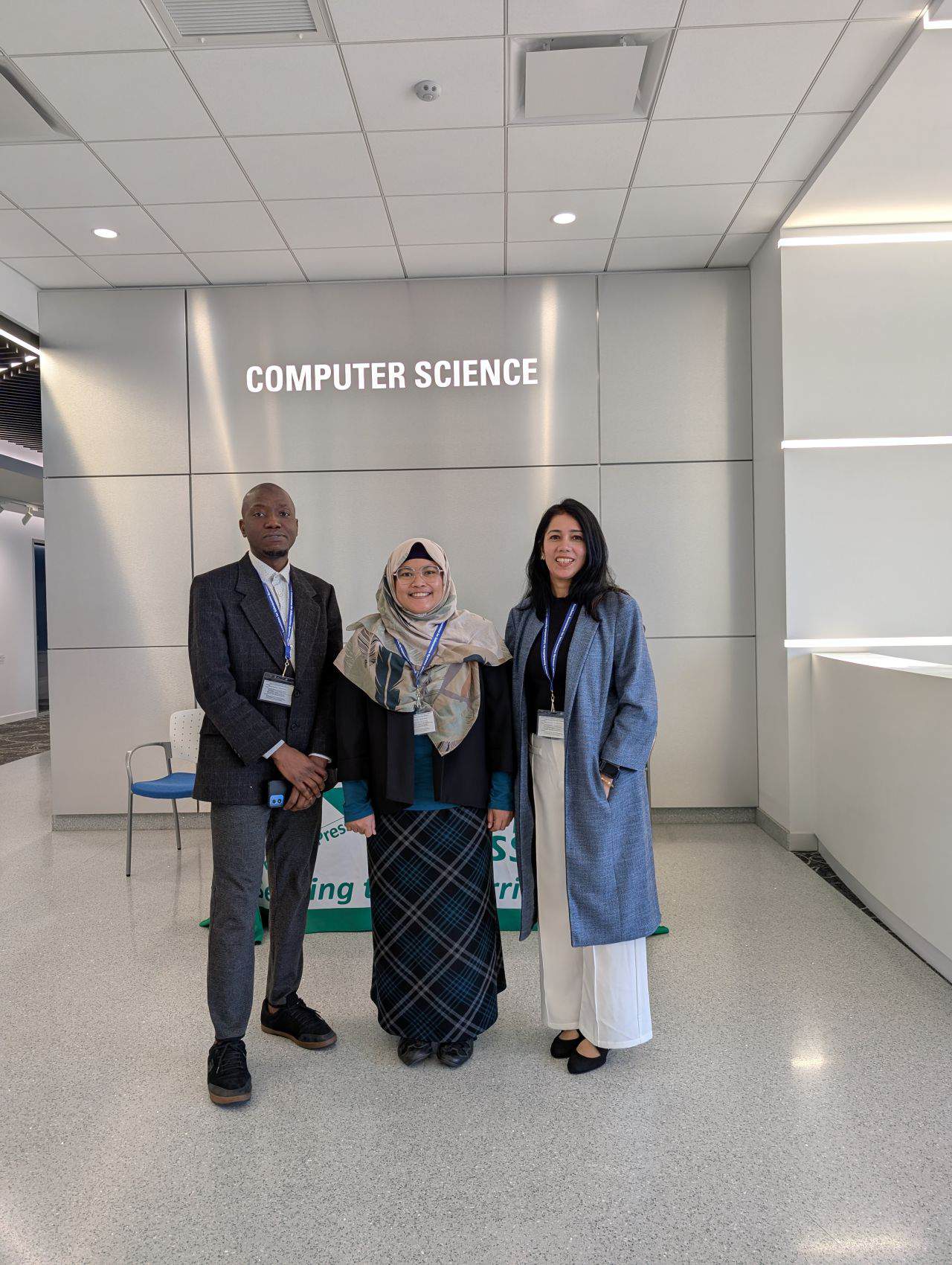Ghazal Hussain, Yue Liu, and Shezin Hussain, doctoral students within the School of Information (iSchool), presented their research at the 27th Annual Conference of the Southern Association for Information Systems (SAIS) from March 13-15, 2025. This distinguished regional conference provides an opportunity for scholars and professionals to exchange knowledge and collaborate on advancing the field of information systems.

Ghazal Hussain’s research paper, titled “Managing Anxiety and Uncertainty: The Information-Seeking Behaviors of IT Managers in Turbulent Times,” explores how IT managers navigate crises, such as cybersecurity threats, through information-seeking strategies. Inspired by real-world incidents like the 2024 CrowdStrike disruption and CCI’s website malfunction in 2022, Hussain analyzed how managers’ ability to access and interpret information impacts their decision-making and stress levels.
“One of the key findings in my research is that IT managers rely heavily on a multitude of information sources, including internal teams, external vendors, and professional networks,” Ghazal Hussain shared. “Those who proactively seek information experience lower anxiety, as it gives them a greater sense of control in uncertain situations.”
Ghazal Hussain’s work highlights the need for organizations to develop training programs that equip IT managers with advanced information-seeking skills while fostering a culture of collaboration and mental well-being.
“I am honored to have my research recognized at SAIS. This opportunity allows me to contribute to discussions on technology and decision-making while building new collaborations for future research,” she said, extending gratitude to her mentors, Drs. Shuyuan Ho Metcalfe, Chris Hinnant, and Margaret Sullivan, for their unwavering support.

Yue Liu’s research paper, “Explainable AI in Cyber Defense: Research Agenda to Unveil Deepfake Information Manipulation,” tackles one of the most pressing challenges in cybersecurity today: deepfake misinformation. Liu’s work focuses on leveraging explainable artificial intelligence (XAI) to create more effective cyber defense systems.
“Our research aims to develop detection methods that not only identify deepfakes but also help individuals understand the differences between real and manipulated content,” explained Liu. “We are conducting human-machine collaboration experiments in the U.S. and Italy to enhance XAI models and ensure that their explanations are both clear and relevant.”
Liu emphasizes the critical role of public awareness in combating disinformation and hopes that their research will contribute to stronger, more reliable security measures on social networks.
“The acceptance of our research at SAIS is an exciting milestone. It highlights the importance of combating deepfake threats and allows us to refine our methods through expert feedback,” Liu said.
 Shezin Hussain presented her paper, “Are Smart Home Device Consumers Protected by the U.S. States’ Data Privacy Laws: A Content Analysis,” which was coauthored by fellow doctoral students Anisah Herdiyanti, Lateef Ayinde, and Forhan Bin Emdad. The paper focused on smart home devices, their adoption in the United States, and the lack of data privacy laws governing their use. She also presented her research later that month at the 2025 iConference.
Shezin Hussain presented her paper, “Are Smart Home Device Consumers Protected by the U.S. States’ Data Privacy Laws: A Content Analysis,” which was coauthored by fellow doctoral students Anisah Herdiyanti, Lateef Ayinde, and Forhan Bin Emdad. The paper focused on smart home devices, their adoption in the United States, and the lack of data privacy laws governing their use. She also presented her research later that month at the 2025 iConference.
“These interactions greatly contributed to advancing my Ph.D. journey and broadening my academic perspective,” Shezin Hussain shared.

